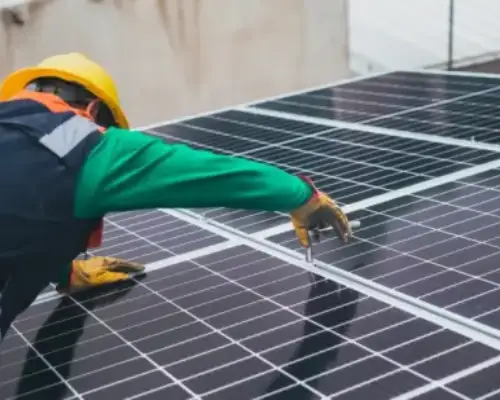Investing in Solar Energy: Long-Term Benefits and Sustainability

As the world shifts toward renewable energy, solar power has become a leading investment opportunity. Solar energy systems not only offer significant financial returns but also contribute to environmental sustainability. In this article, we examine the economic and ecological advantages of investing in solar energy and its potential as a long-term solution.
Why Solar Energy is a Smart Investment
- Cost Savings: By generating your own electricity, you can significantly reduce or eliminate utility bills. Over the lifespan of a solar system, these savings often outweigh the initial investment.
- Government Incentives: Many countries offer tax credits, rebates, and subsidies to encourage solar adoption, reducing upfront costs.
- Energy Independence: Solar systems allow individuals and businesses to rely less on traditional energy providers, providing stability against fluctuating electricity prices.
- High Return on Investment (ROI): Solar installations typically pay for themselves within 5-10 years, with systems lasting 25 years or more.
Environmental Benefits of Solar Energy
- Reduced Carbon Emissions: Solar power generates clean energy, significantly lowering greenhouse gas emissions compared to fossil fuels.
- Resource Conservation: Unlike coal or natural gas, solar energy requires no water or fuel for electricity generation.
- Promoting Sustainability: Widespread adoption of solar power supports global efforts to combat climate change.
Economic Impacts
- Job Creation: The solar industry creates thousands of jobs in manufacturing, installation, maintenance, and research.
- Market Growth: As demand for solar energy increases, it stimulates technological advancements and drives economic growth.
Challenges of Solar Investments
- Initial Costs: The upfront expense of solar systems can be a barrier. However, decreasing technology costs and financial incentives make it increasingly affordable.
- Space Requirements: Sufficient roof or ground space is necessary for solar panels. This can be addressed with customized designs for urban or limited spaces.
Long-Term Benefits
- Durability and Reliability: Solar panels are designed to withstand harsh weather conditions and require minimal maintenance.
- Energy Storage Advancements: Modern battery technology allows for efficient energy storage, ensuring power availability even at night or during cloudy periods.
- Increased Property Value: Homes and businesses with solar installations often have higher resale values.
Conclusion
Investing in solar energy is more than a financial decision; it is a commitment to a sustainable and environmentally friendly future. With its dual benefits of reducing costs and promoting sustainability, solar energy is a powerful solution for individuals, businesses, and governments seeking long-term growth and environmental responsibility.







